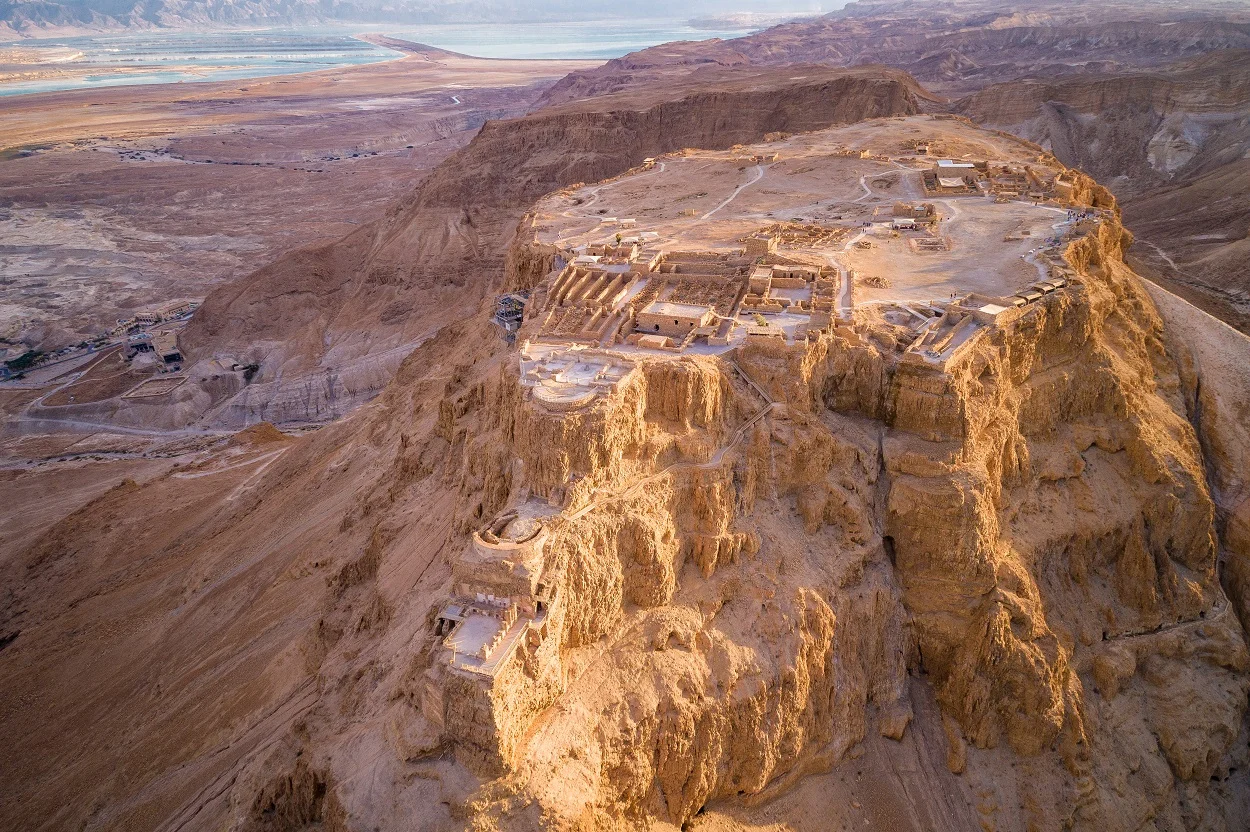Archaeologists from the Israel Antiquities Authority (IAA) have uncovered a papyrus paycheck belonging to Roman soldier during excavations at Masada.
Masada is an ancient fortress and palace, built by King Herod the Great between 37 and 31 BC, situated on a plateau overlooking the dead sea in the Southern District of Israel.
During the First Jewish-Roman War, also called the Great Revolt, Masada was taken by the Sicarii (meaning “dagger-man”), a splinter group of the Jewish Zealots, and one of the earliest organised groups that specialised in the act of assassination.
In AD 72, the legion X Fretensis, commanded by Lucius Flavius Silva, marched on Masada to break the Sicarii resistance. The legion was supported by several auxiliary units and Jewish prisoners of war (totalling some 15,000 men and women according to accounts by the Romano-Jewish historian, Flavius Josephus).

The Romans encircled Masada with a circumvallation siege wall, running for 6.8 miles around the mountain plateau, supported by a series of fortified encampments or temporary forts.
After several attempts to breach Masada’s defences, the Romans constructed a giant siege ramp scaling the western side of the fortress to a height of 61 metres. A siege tower and battering ram was slowly moved up the ramp, where on April 16th, AD 73, the walls of Masada were breached.
The events that followed has divided historians and archaeologists. According to Josephus: “it [was] by the will of God, and by necessity, that [they, the Sicarrii] are to die” and that the defenders drew lots and killed each other in turn, down to the last man (as Judaism prohibits suicide). Josephus further stated that their leader, Eleazar ben Ya’ir’s, ordered all provisions to be destroyed, to demonstrate to the Romans that they defiantly chose death over slavery.
Excavations by the IAA have found a detailed military paycheck (one of only three legionary paychecks discovered in the entire Roman Empire), issued to a Roman legionary soldier from the period of the First Jewish-Roman War in AD 72. The paycheck is one of 14 Latin scrolls found at Masada by archaeologists – 13 of which was written on papyrus, and one on parchment paper.
The paycheck provides a detailed summary of a Roman soldier’s salary over two pay periods (out of three he would receive annually), including the various deductions that he was charged.
Dr. Oren Ableman, senior curator-researcher at the Israel Antiquities Authority Dead Sea Scrolls Unit, said: “The soldier’s paycheck included deductions for boots and a linen tunic, and barley fodder for his horse.”
“Surprisingly, the details indicate that the deductions almost exceeded the soldier’s salary. Whilst this document provides only a glimpse into a single soldier’s expenses in a specific year, it is clear that in light of the nature and risks of the job, the soldiers did not stay in the army only for the salary,” added Dr Ableman.
According to Dr. Ableman, “The soldiers may have been allowed to loot on military campaigns. Other possible suggestions arise from reviewing the different historical texts preserved in the Israel Antiquities Authority Dead Sea Scrolls Laboratory.
For example, a document discovered in the Cave of Letters in Nahal Hever from the time of the Bar Kokhba Revolt (AD 132–135), sheds light on some side hustles Roman soldiers used to earn extra cash. This document is a loan deed signed between a Roman soldier and a Jewish resident, the soldier charging the resident with interest higher than what was legal. This document reinforces the understanding that the Roman soldiers’ salaries may have been augmented by additional sources of income, making service in the Roman army far more lucrative.”
Header Image Credit : Shai Halevi, Israel Antiquities Authority





